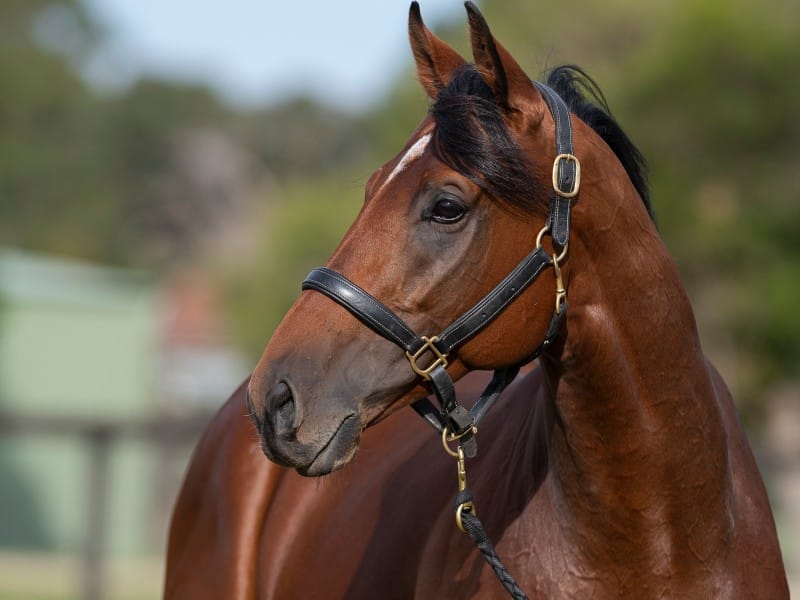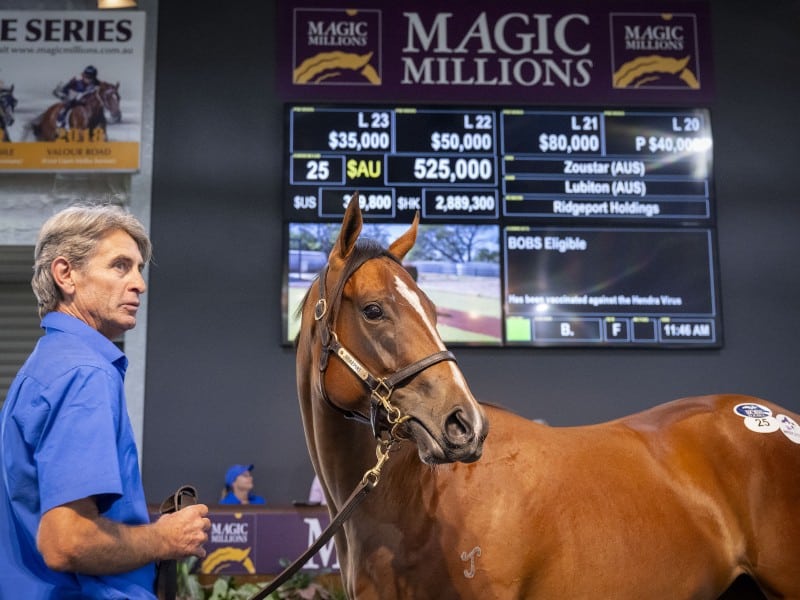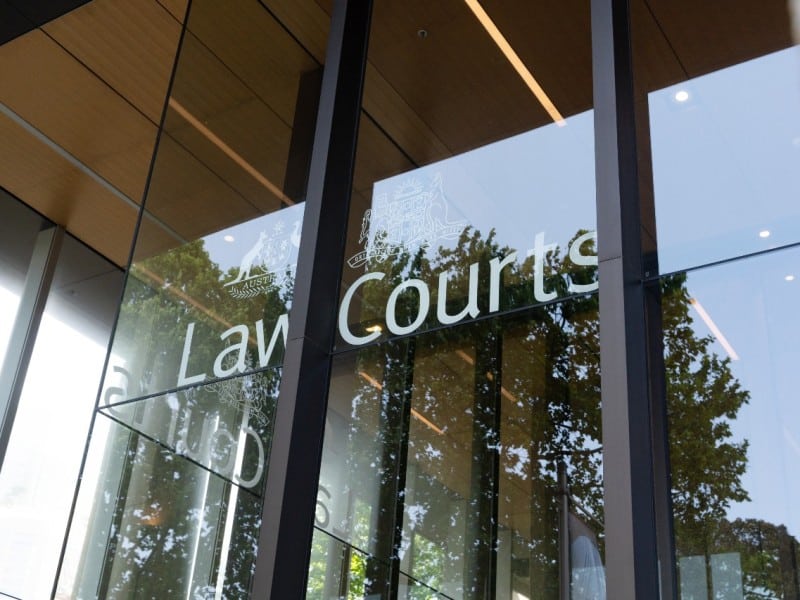Staking a claim – how a $1 million slot race found a home in WA’s desert
In a nod to the pioneers of Western Australia’s gold rush era, there will be a modern-day spin attached to the first running of the $1 million Golden Saddle on Saturday at Kalgoorlie.
In a nod to the pioneers of Western Australia’s gold rush era, there will be a modern-day spin attached to the first running of the $1 million Golden Saddle on Saturday at Kalgoorlie.
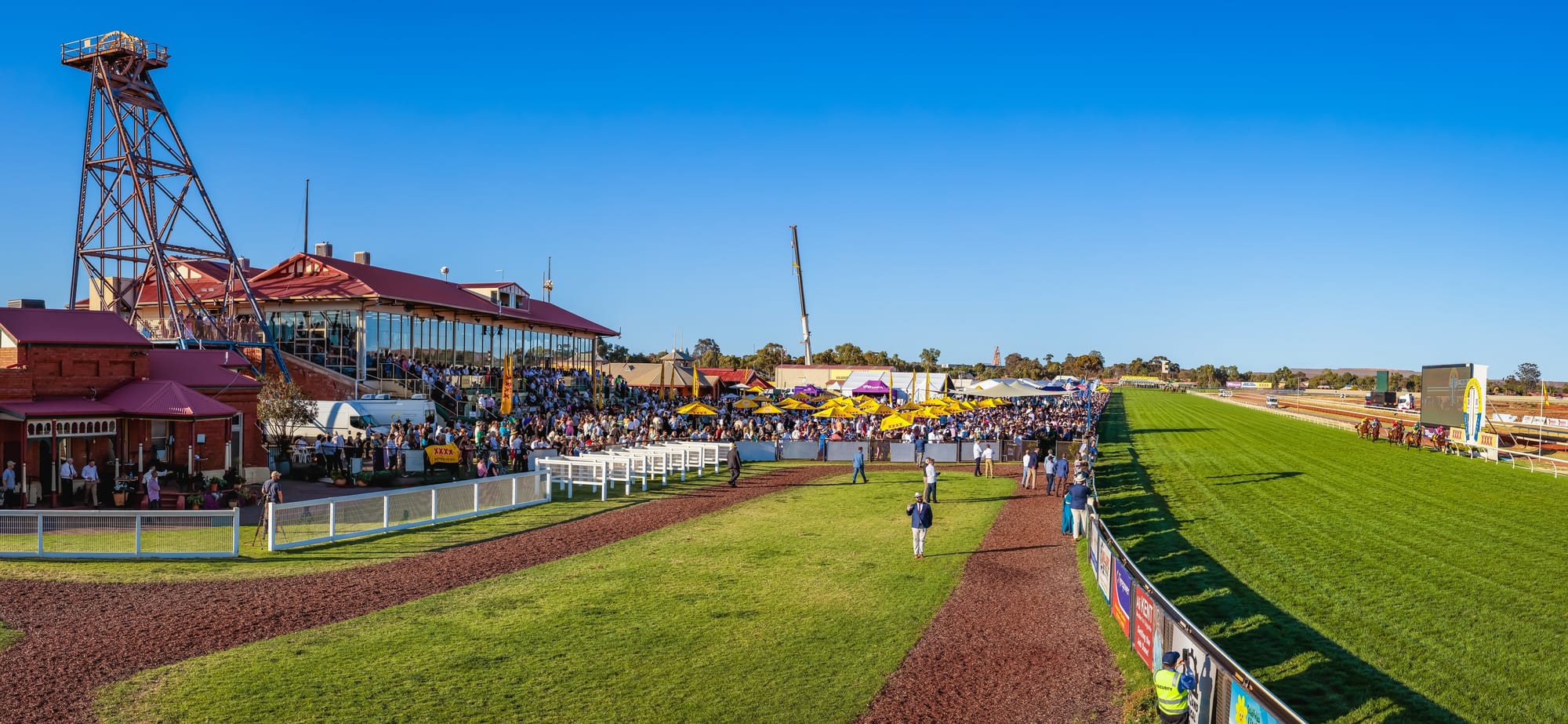
During the inevitable boom-or-bust cycle of Australia’s far-flung mining towns, people come and go, fortunes are made and lost.
Somehow, the sport of horse racing remains ever-present, surviving downturns, powered by the legacy of dreamers who became miners. They worked hard and played even harder.
Kalgoorlie, a gold rush town that sprang up in Western Australia’s desert about 600km east of Perth, stands as a quintessential example of how thoroughbred racing has always belonged in these communities.
In 1893, when an Irishman named Paddy Hannan and two other fellow prospectors discovered gold in the district, the word had spread within a week.
Miners first came in their hundreds, then their thousands. Those who sensed there was a quid to be earned as traders soon followed.
For those who had pitched their tents, the area was called Hannan’s Find, as a seemingly endless supply of gold deposits secured theirs and the district’s future.
The state government’s decision to select the name Kalgoorlie and have the town gazetted in 1894 coincided with the year horse racing was documented as having an unofficial presence in what is now known as the Goldfields region.
Racing was formalised two years later, creating an industry within an industry that would have its own Eureka moment almost 130 years later with the running of the Golden Saddle, instantly one of regional Australia’s richest races.
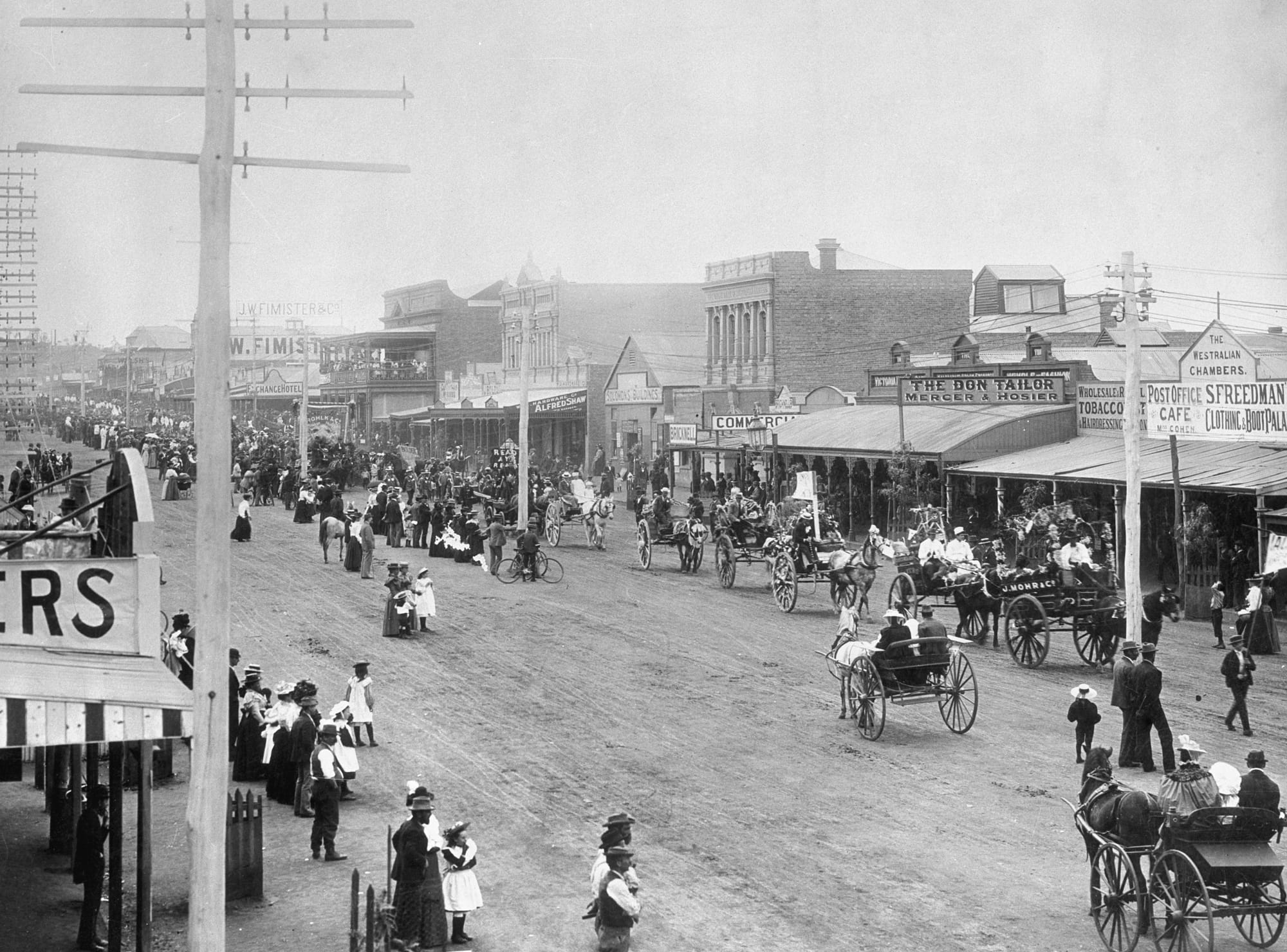
The Golden Saddle has been introduced to join the Kalgoorlie Cup and the Hannans Handicap as nucleus races during a Kalgoorlie-Boulder Racing Club (KBRC) season that might not have happened.
A dispute over water allocation threatened to compromise the state of Kalgoorlie’s turf track, which is a focal point of a remote racing destination admired for an old-world charm that has now embraced a new-age approach.
The Golden Saddle is the latest slot race to find a place on the national calendar.
It is named in recognition of pioneer prospectors such as Hannan, who arrived on horseback and left with saddles full of gold.
Geographically, Kalgoorlie might seem like an appropriate final frontier, but for Australian racing, the Golden Saddle is a continued expansion of similar concepts that have piggybacked on the rise of The Everest in Sydney.
Victoria now has two slot races towards the end of its spring carnival, Queensland officials have taken the idea to Rockhampton and Toowoomba and the $5 million Quokka has been a Perth racing success story since 2023.
The Golden Saddle will have a $1 million purse, thanks to the backing of some mining industry heavyweights and a three-year, $1.5 million commitment from the WA government.
“The Kalgoorlie Race Round provides a significant economic injection to the region, while bringing the community together at key social events,” WA Premier Roger Cook said when launching the Golden Saddle.
“Adding the biggest regional slot race in the nation will further increase the popularity of the Kalgoorlie Cup.”
The race’s $1 million purse includes the state government’s $500,000 commitment, $80,000 in stakes, which would usually be committed to a Saturday city race, and slot holders’ investments accounting for the remaining funds.
Racing and Wagering Western Australia chief executive Ian Edwards says the government’s contribution underlines the value of racing outside of the state’s metropolitan area while providing a conduit to boost tourism in the region.
“Racing in Kalgoorlie-Boulder is steeped in tradition, dating back to the first race meeting in 1896,” he said.
“Almost 130 years on, racing in the Goldfields-Esperance region contributes $54.3 million each year to the WA economy.
“It’s fantastic to see the state government celebrate this proud history – and regional racing more broadly – through its commitment to the Golden Saddle over the next three years and, of course, the recently announced $25.2 million Regional Racing Infrastructure Fund.
“I’m really looking forward to being there on Saturday, with the Golden Saddle adding another layer of excitement to the Kalgoorlie Cup meeting and giving us the chance to showcase regional racing to a wider audience.
“Hopefully, that will attract even more visitors to WA to experience our racing in the years ahead.”
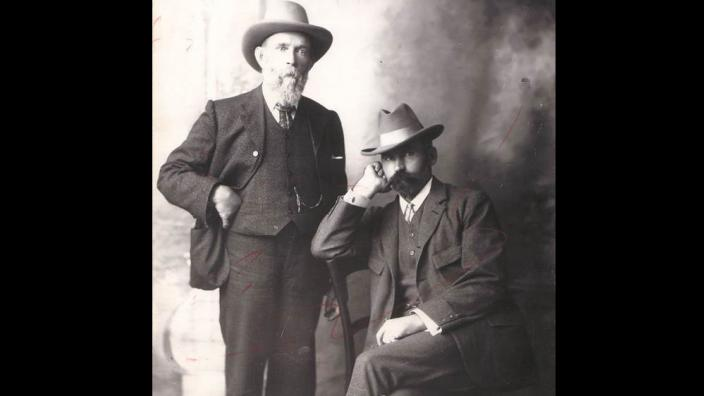
The KBRC has leaned heavily on its mining relationships to bring the Golden Saddle to life.
Bill Beament is described as a rockstar of the mineral resources sector, lifting Northern Star Resources from a penny dreadful stock into one of the premier gold mining companies in the ASX Top 50.
Beament and local identity Ashok Parekh utilised their business acumen and connections to lobby the WA government to give Kalgoorlie racing an opportunity to strike what is commonly known in the goldfields as “paydirt”.
Resources firm Develop Global, of which Beament has been managing director since 2021, holds naming rights to the Golden Saddle.
“Bill Beament and Ashok Parekh were the ones working with Roger Cook to get it over the line,” KBRC chief executive Craig Smith said.
“They rallied the troops pretty much by themselves to get the slots filled and the government on board.”
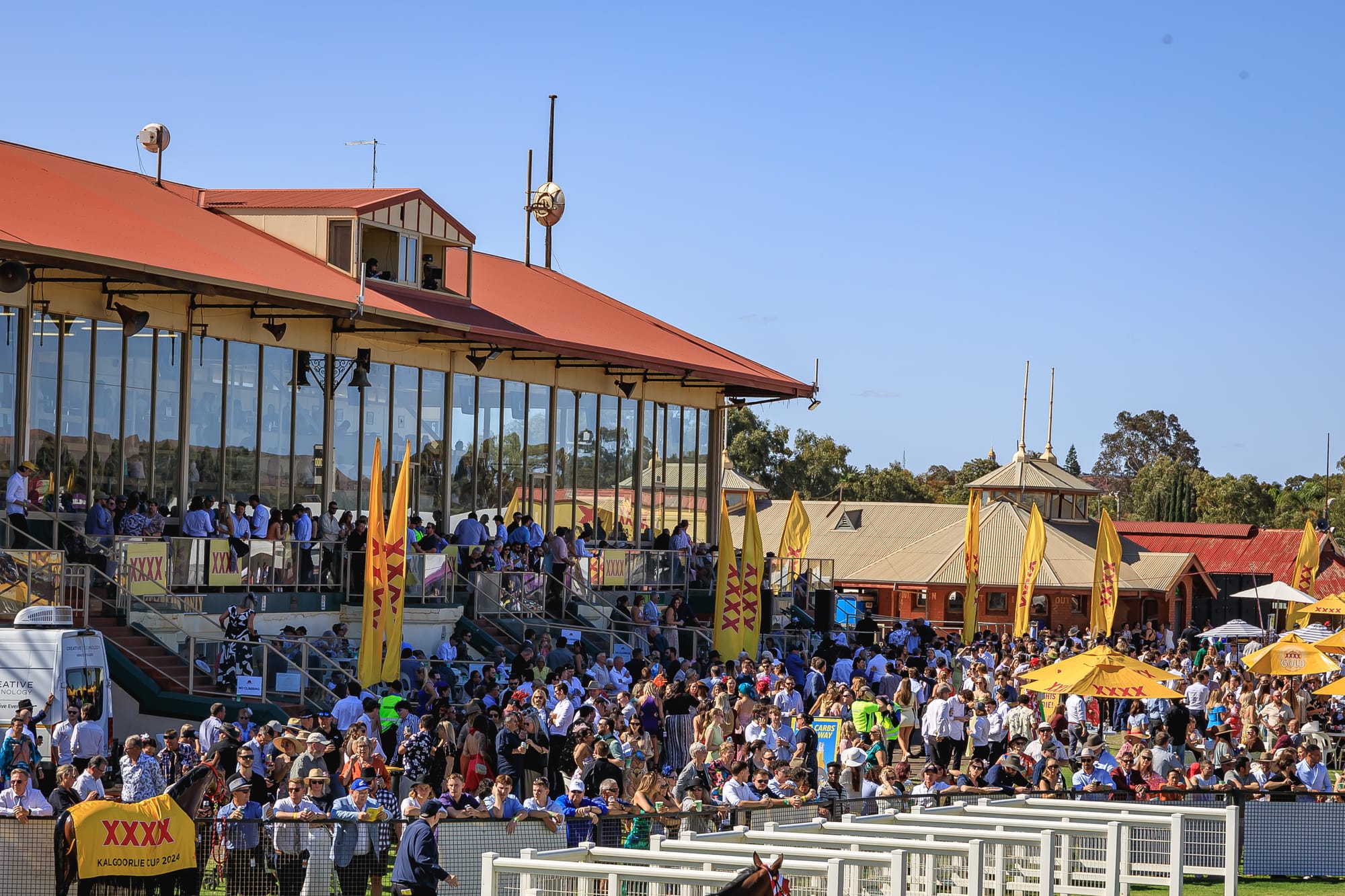
A son of an Indian doctor and an Irish mother, born and raised in Dublin, Parekh has lived in Kalgoorlie for four decades.
He wears many hats as a chartered accountant, local publican, the chair of two gold mining companies and a valued member of the racing fraternity.
“I don’t mind helping out because I love the racing and I love the people,” he says.
“I find that with the racing, all the people who come here, they just love it.
“Some have been coming 30, 40, 50 years, and with the trainers, it’s a real comradeship that I see.”
Kalgoorlie will cap its crowd numbers at 8000 for the Golden Saddle meeting, and in the same way mining relies on fly-in, fly-out workers, so too will the KBRC.
“We fly probably half our employees in from Perth, from Perth Racing,” Smith said.
“We take the Saturday day schedule off Perth Racing and we fly in bar staff, security, the whole lot.
“That’s because we just don’t have enough people to support the event.”
Flying in with them will be WA’s champion jockey William Pike, who was born in Kalgoorlie and grew up in nearby Coolgardie.
Pike has ridden more than 3500 winners. He rode 234 of them in the 2018/2019 season to set a national record.
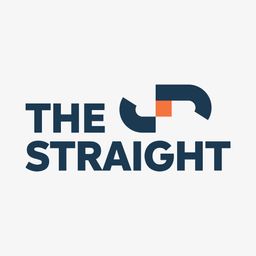
He will ride Yonga Lass, regarded as one of the better chances in Golden Saddle and Starry Heights, who will run close to favourite in the Kalgoorlie Cup after winning the race in 2024.
Before Pike started his rise to the top, Kalgoorlie became a centrepiece for racing celebrations after Doriemus won the 1995 Melbourne Cup.
Co-owners Keith Biggs and Dr Dick Austin, bona fide Kalgoorlie identities, hosted the Freedman clan, and the festivities were apparently in keeping with the town’s wild west reputation.
Doriemus’ victory reconnected the Goldfields to the romance of the Melbourne Cup after Blue Spec landed a plunge for Kalgoorlie businessman PA “Paddy” Connolly.
Connolly reportedly collected £20,000 from bookmakers, more than four times the Cup’s winning purse.
That was in 1905, and 120 years later. staking a claim in the next chapter in Kalgoorlie’s rich racing history is about to unfold.

